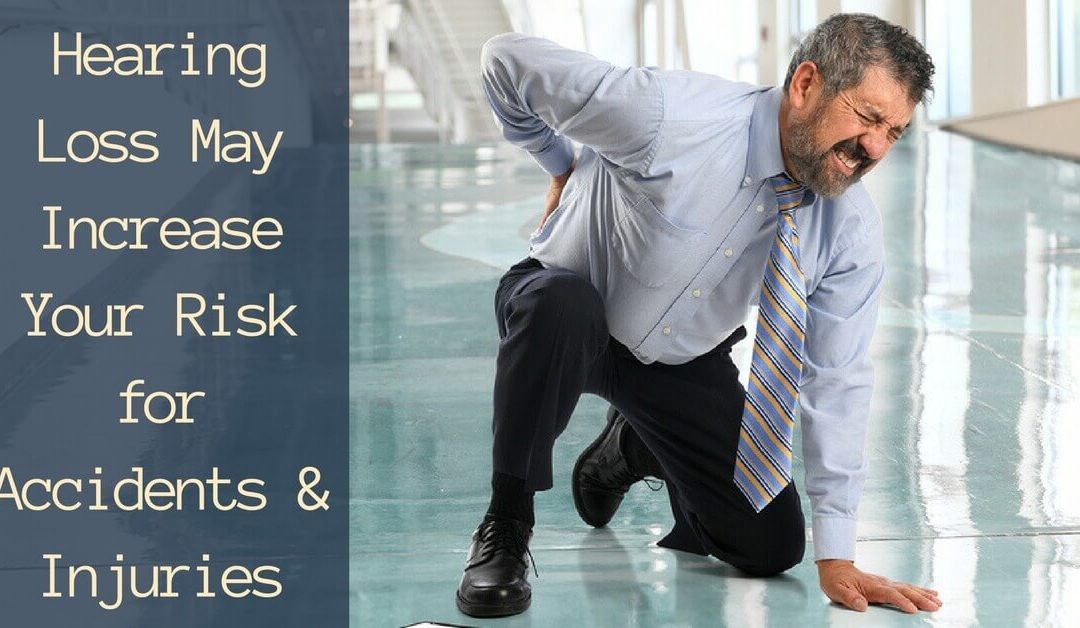What is the hardest thing about living with untreated hearing loss? There are probably hundreds of different ways to answer this question, depending on a person’s unique hearing loss and situation. Our minds naturally turn to the difficulty of keeping up in conversations, or not being able to understand our loved ones. But there is another important issue to consider–untreated hearing loss has been linked to a higher risk of accidental injury.
Researchers find hearing loss-accident connection
Dr. Neil Bhattacharyya, an otolaryngologist at Brigham and Women’s Hospital in Boston, recently ran a study to look into whether there is a connection between hearing loss and an increase in accidents. And it turns out there is. His research team examined survey data from the U.S. National Health Interview Survey and found that 6.6 million people had suffered an accidental injury. One in six of those people reported that their own hearing was “less than excellent or good.”
The study shows that a higher rate of accidental injuries is associated with self-reported, poorer hearing adults, with leisure-related injuries being the most prevalent among those participants. People who believed they had “good” or “a little trouble” hearing were at higher risk of work-related injuries. One of the key findings of the study was that the danger of injury actually heightened the more severe the hearing loss, although this risk was somewhat lower with driving accidents. Those with ‘a little trouble’ with their hearing had a 60 percent increased chance of accidental injury, and those who had ‘moderate trouble’ with their hearing had a 70 percent increased chance of accidents.
What are the implications?
The researchers were confident in their interpretation of these findings: there is a distinct correlation between hearing loss and accidents.
“Our data suggests a strong relationship between poorer hearing and accidental injury,” Bhattacharyya stated. They also noted the prevalence of leisure-related injuries among the hard of hearing, proposing that people may not feel as though they are in such dangerous situations (compared to the hazards in certain work environments) and might be less attentive and careful in their leisure time.
How can hearing aids help?
The research team believes that a portion of these accidents are very much preventable, and anyone who is concerned about their hearing should get it tested and be fitted for hearing aids if necessary.
Studies show that hearing aids not only improve social interactions and make conversations easier, but they also keep you safer, both at home and out and about in the world. In a 2015 study by Eurotrak, half of the respondents reported feeling safer and more independent while wearing their hearing aids. When hearing is improved, it can make it easier to stay safe in a bustling city by alerting us to traffic sounds and other noises, and also by helping us to locate where sounds are coming from. At home, hearing aids make it easier to hear alarms, oven timers, the telephone, and even a call for help from someone in the neighborhood.
In addition to alerting you to danger, hearing aids have the ability to help you balance. A study carried out by the Washington University School of Medicine found that perceiving sound is important to keeping your balance. Their study involved testing the balance of hearing aid users, some with their hearing aids and some without. The study participants who were wearing their hearing aids showed improved balance, compared to those not wearing them.
Lastly, the National Institute on Aging has found that people with mild hearing loss were three times more likely to fall than people with no hearing loss. And the risk of falling increases by 1.4 percent with each 10-decibel increase in hearing loss. This is also a balance issue. The researchers believe that struggling to hear puts a strain on the brain, which leaves fewer available resources for balancing the body. Wearing a hearing aid reduces the cognitive load on the brain and allows it to focus more on maintaining balance, which reduces the chances of a fall.
Treating Hearing Loss
Although these recent findings are concerning, the good news is there are steps we can take to actively reduce the risk of falls and accidents in the future. Hearing aids can improve personal safety, but whether or not you wear them, remember to be careful at work and in your leisure time.

